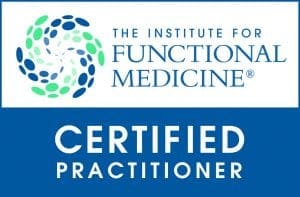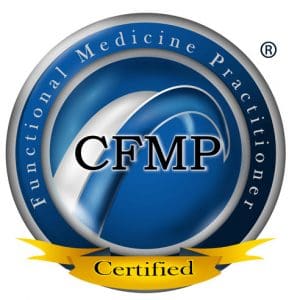The production of inflammatory cytokines and oxidative stress are linked to metabolic derangements that ultimately lead to an elevated risk of developing chronic disease. The novel investigation that links inflammation and oxidative stress with type 2 Diabetes Mellitus dig deeply into the metabolic and cellular pathways. Recent studies focused on the therapeutic effect of berberine, and metabolic outcomes have shown positive results. However, berberine’s inhibitory effects against oxidative stress and inflammation are complex and need to be featured.
Berberine is the alkaloidal bioactive compound found in Hydratis Canadensis and Coptis Chinensis. Its beneficial activities are related to its capacity to interact with multiple proteins in the body. Besides, berberine has many metabolites associated with different beneficial functions because they interact with different cellular pathways.
Â
Berberine Metabolism
The production of inflammatory cytokines and oxidative stress are linked to metabolic derangements that ultimately lead to an elevated risk of developing chronic disease. The novel investigation that links inflammation and oxidative stress with type 2 Diabetes Mellitus dig deeply into the metabolic and cellular pathways. Recent studies focused on the therapeutic effect of berberine, and metabolic outcomes have shown positive results. However, berberine’s inhibitory effects against oxidative stress and inflammation are complex and need to be featured.
Berberine is the alkaloidal bioactive compound found in Hydratis Canadensis and Coptis Chinensis. Its beneficial activities are related to its capacity to interact with multiple proteins in the body. Besides, berberine has many metabolites associated with different beneficial functions because they interact with different cellular pathways.
Â
Table of Contents
Berberine Metabolism
The metabolism of berberine is reported to have 2 phases. In the first phase, berberine goes through demethylation, dehydrogenation, and hydroxylation. Further, berberine’s 2nd phase metabolism produces glucuronide conjugates and methylated conjugates. Nevertheless, feces and urine metabolites have been reported. Dihydroberberine (dhBBR) was found in mice feces and has been linked to the gut microbiota metabolism. On the other hand, demethylberberine-2-O-sulfate was the major berberine metabolite found in urine. Despite the ample variety of metabolites, berberine has a low plasma concentration, is poorly absorbed by the gut, and commonly remains in the gut lumen.
Common berberine metabolites |
| berberrubine |
| thalifendine |
| demethyleneberberine |
| jatrorrhizine |
Â
Uses of berberine
Â
The efficacy of berberine to treat diabetes is comparable to metformin results. Besides, berberine is effective in reducing endothelial dysfunction, retinopathy, and kidney failure. Also, the use of berberine on hepatic pathologies and low toxicity are related to treatment efficacy.
- Lowers blood glucose.
- Improves insulin sensitivity.
- Modulated microbiota.
- Regulates B-cell.
- Activates AMPK.
- Upregulates insulin receptors.
- Works as an antioxidant.
- Reduces inflammation.
Antioxidant effect of berberine.
Â
The supplementation of berberine in animal model studies resulted in increased levels of GHS and a higher activity of superoxide dismutase (SOD) and glutathione peroxidase (GHS-Px). On the other hand, berberine reduced malondialdehyde (MDA) levels. The results of such studies link berberine to the scavenging of superoxide free radicals, even in a glycemic environment.
Â
The exerted effects on the upregulation of mRNA content of SOD are mediated by SIRT1 and FOXO overexpression. Also, it suppresses nicotinamide adenine dinucleotide phosphate (NADPH) oxidase, resulting in less ROS. This can improve diabetic conditions. Concerning the downregulation of NADH oxidase, AMPK activation is linked to a reduced arterial oxidative stress.
UCP2
On the other hand, the upregulation effect of berberine over the expression of UCP2 (uncoupling protein 2) has yet to be clarified. UCP2 is located in the mitochondria membrane, and its presence is linked to reduced production of ROS and oxidative stress. Yet, more information is needed to understand the effects of UCP2 on islet B-cell. It has been reported that UCP2 could inhibit insulin secretion.
Another berberine’s antioxidant effect is related to the expression of Nrf2 (nuclear factor erythroid-2 related factor 2) pathway.
-
Nfr2:
is an antioxidant transcription factor that works via the expression of NQO-1 (NADPH quinone oxidoreductase 1) and HO-1 (heme oxygenase-1).
- Balances energy metabolism.
- Maintenance of redox potential in cells.
- Nfr2 + berberine antioxidant effect depends on the activation of P38, AMPK, and P13K (phosphatidylinositol 3 kinase)/Akt pathways.
- Nfr2+ berberine leads to an Nfr2 translocation to the nucleus that results in GSH and SOD expression.
Anti-inflammatory potential of berberine
Recent studies associate the suppression of proinflammatory cytokines with the presence of berberine. Indeed, some of these suppressed cytokines are MMP9 (matrix metalloprotease 9), TNF-α, COX2 (cyclooxygenase-2), iNOS (inducible nitric oxide synthase), MCP1 (monocyte chemoattractant protein 1), IL-6, IL-1β, CRP (C-reactive protein), and HP (hepatoglobin). Some of the berberine’s effects on downregulating cytokine production rely on its capacity to reduce serine phosphorylation while increasing tyrosine phosphorylation.
Multiple pathways mediate berberine’s antioxidant effect; the anti-inflammatory mechanisms are linked to various pathways, some of them shared with the antioxidant pathway.
AMPK
Not only the AMPK pathway is involved in the antioxidant effects of berberine. In fact, studies show that in the case of an AMPK blockage, berberine could not intervene with the synthesis of COX-2 and iNOS. Therefore, the expression of prostaglandins and excessive release of nitric oxide augmented IR’s development, contributing to the DM pathogenesis.
Another inflammation-induced pathway, MAPK (mitogen-activated protein kinase), could be downregulated by AMPK and berberine activation.
Nrf2 and P38
P38 is a mitogen-activated protein kinase with extensive effects in inflammatory pathways. Its conjugation with berberine has brought conflicting findings. In fact, some reports show that their combined actions could lead to glucose uptake by L6 cells, but other studies found that these results could not be reproduced.
However, the Nrf2 activation and nuclear translocation have been associated with berberine and the activation of P38 and AMPK pathways. Therefore, the expression of proinflammatory cytokines has been reduced by these actions.
NF-κB pathway
The NF-κB pathway can be stimulated by glucose, fatty acids, and TNF-a, as well as the activation of IκB kinase- β (IKK-β) through serine phosphorylation (ser181). However, the supplementation of berberine resulted in a decrease of IKK-β and further inhibited the nuclear transfer of NF-κB. Therefore, a reduction in the synthesis of proinflammatory cytokines like IL-6, iNOS, COX2, and TNF-α contributes to enhanced DM results.
Applied berberine supplementation
Â
The most common berberine dosage used in clinical studies ranges between 0.2-10g/day. In fact, the intervention with these amounts of berberine resulted in a 20-40% reduction in blood glucose level. It has been reported that these results resemble the effects of metformin and rosiglitazone. Despite the clinical uses, anti-inflammatory, and antioxidant properties, berberine needs to be further explored.
SMOOTH(ie) Genes
- 1 scoop veggie protein powder
- 1 tablespoon ground flaxseed
- 1/2 banana
- 1/2 cup blackberries
- 1/2 teaspoon cinnamon
- Non-dairy milk or water
Blend well, add water or milk depending on desired consistency.
-Ana Paola RodrÃguez Arciniega. Master in Clinical Nutrition.
References
Ma, Xueling, et al. “The pathogenesis of diabetes mellitus by oxidative stress and inflammation: its inhibition by berberine.” Frontiers in Pharmacology 9 (2018): 782.
Wang, Kun, et al. “The metabolism of berberine and its contribution to the pharmacological effects.” Drug metabolism reviews 49.2 (2017): 139-157.
Cicero, Arrigo FG, and Alessandra Baggioni. “Berberine and its role in chronic disease.” Anti-inflammatory Nutraceuticals and Chronic Diseases. Springer, Cham, 2016. 27-45.
Dr. Alex Jimenez’s Blog Post
Disclaimer
Our information scope is limited to chiropractic, musculoskeletal, physical medicines, wellness, sensitive health issues, functional medicine articles, topics, and discussions. We provide and present clinical collaboration with specialists from a wide array of disciplines. Each specialist is governed by their professional scope of practice and their jurisdiction of licensure. We use functional health & wellness protocols to treat and support care for the musculoskeletal system’s injuries or disorders. Our posts, topics, subjects, and insights cover clinical matters, issues, and topics that relate and support, directly or indirectly, our clinical scope of practice.* Our office has made a reasonable attempt to provide supportive citations and has identified the relevant research study or studies supporting our posts. We also make copies of supporting research studies available to the board and or the public upon request. We understand that we cover matters that require an additional explanation of how it may assist in a particular care plan or treatment protocol; therefore, to further discuss the subject matter above, please feel free to ask Dr. Alex Jimenez or contact us 915-850-0900. The provider(s) Licensed in Texas*& New Mexico*Â
Additional Online Links & Resources (Available 24/7)


Online Appointments or Consultations:Â https://bit.ly/Book-Online-Appointment
Online Physical Injury / Accident Intake Form: https://bit.ly/Fill-Out-Your-Online-History
Online Functional Medicine Assessment: https://bit.ly/functionmed
General Disclaimer
Professional Scope of Practice *
The information herein on "Berberine: Inflammation and Oxidative Stress" is not intended to replace a one-on-one relationship with a qualified health care professional or licensed physician and is not medical advice. We encourage you to make healthcare decisions based on your research and partnership with a qualified healthcare professional.
Blog Information & Scope Discussions
Welcome to El Paso's Premier Wellness and Injury Care Clinic & Wellness Blog, where Dr. Alex Jimenez, DC, FNP-C, a Multi-State board-certified Family Practice Nurse Practitioner (FNP-BC) and Chiropractor (DC), presents insights on how our multidisciplinary team is dedicated to holistic healing and personalized care. Our practice aligns with evidence-based treatment protocols inspired by integrative medicine principles, similar to those found on this site and our family practice-based chiromed.com site, focusing on restoring health naturally for patients of all ages.
Our areas of multidisciplinary practice include Wellness & Nutrition, Chronic Pain, Personal Injury, Auto Accident Care, Work Injuries, Back Injury, Low Back Pain, Neck Pain, Migraine Headaches, Sports Injuries, Severe Sciatica, Scoliosis, Complex Herniated Discs, Fibromyalgia, Chronic Pain, Complex Injuries, Stress Management, Functional Medicine Treatments, and in-scope care protocols.
Our information scope is multidisciplinary, focusing on musculoskeletal and physical medicine, wellness, contributing etiological viscerosomatic disturbances within clinical presentations, associated somato-visceral reflex clinical dynamics, subluxation complexes, sensitive health issues, and functional medicine articles, topics, and discussions.
We provide and present clinical collaboration with specialists from various disciplines. Each specialist is governed by their professional scope of practice and their jurisdiction of licensure. We use functional health & wellness protocols to treat and support care for musculoskeletal injuries or disorders.
Our videos, posts, topics, and insights address clinical matters and issues that are directly or indirectly related to our clinical scope of practice.
Our office has made a reasonable effort to provide supportive citations and has identified relevant research studies that support our posts. We provide copies of supporting research studies upon request to regulatory boards and the public.
We understand that we cover matters that require an additional explanation of how they may assist in a particular care plan or treatment protocol; therefore, to discuss the subject matter above further, please feel free to ask Dr. Alex Jimenez, DC, APRN, FNP-BC, or contact us at 915-850-0900.
We are here to help you and your family.
Blessings
Dr. Alex Jimenez DC, MSACP, APRN, FNP-BC*, CCST, IFMCP, CFMP, ATN
email: coach@elpasofunctionalmedicine.com
Multidisciplinary Licensing & Board Certifications:
Licensed as a Doctor of Chiropractic (DC) in Texas & New Mexico*
Texas DC License #: TX5807, Verified: TX5807
New Mexico DC License #: NM-DC2182, Verified: NM-DC2182
Multi-State Advanced Practice Registered Nurse (APRN*) in Texas & Multistate
Multistate Compact RN License by Endorsement (42 States)
Texas APRN License #: 1191402, Verified: 1191402 *
Florida APRN License #: 11043890, Verified: APRN11043890 *
* Prescriptive Authority Authorized
ANCC FNP-BC: Board Certified Nurse Practitioner*
Compact Status: Multi-State License: Authorized to Practice in 40 States*
Graduate with Honors: ICHS: MSN-FNP (Family Nurse Practitioner Program)
Degree Granted. Master's in Family Practice MSN Diploma (Cum Laude)
Dr. Alex Jimenez, DC, APRN, FNP-BC*, CFMP, IFMCP, ATN, CCST
My Digital Business Card
RN: Registered Nurse
APRNP: Advanced Practice Registered Nurse
FNP: Family Practice Specialization
DC: Doctor of Chiropractic
CFMP: Certified Functional Medicine Provider
MSN-FNP: Master of Science in Family Practice Medicine
MSACP: Master of Science in Advanced Clinical Practice
IFMCP: Institute of Functional Medicine
CCST: Certified Chiropractic Spinal Trauma
ATN: Advanced Translational Neutrogenomics




















